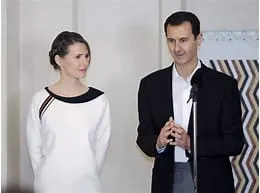There is “no country that has achieved full gender parity”, proclaims a new global report launched by UN Women and UNDP on 18 July at the Women Deliver Conference in Rwandan capital Kigali. In the report, that for the first time provides a more comprehensive picture of progress in women and girl’s human development, it is made clear that fewer than one percent of women and girls live in a country with high women’s empowerment and a small gender gap. The analysis, based out of 114 countries, found that women’s power and freedom to make choices and seize opportunities remain largely restricted. The one percent of women who enjoy gender parity and empowerment are from Australia, Belgium, Denmark, Norway, Iceland and Sweden.
The UK, the USA and China come at 30, 31 and 37 on the global list, while Israel and Japan at 43 and 45, and the UAE (59), Bangladesh (62). India is at 82, Pakistan (100), Nepal (97), Sri Lanka (106). (Data for China do not include Hong Kong Special Administrative Region of China, Macao Special Administrative Region of China or Taiwan Province of China.) Low empowerment and large gender gaps are commonplace. The report also underlined that more than 90 percent of the world’s female population, or 3.1 billion women and girls, who live in countries characterised by a large women’s empowerment deficit and gender gap.
Globally, women are empowered to achieve on average only 60 percent of their full potential, as measured by the Women’s Empowerment Index (WEI). They achieve, on average, 72 percent of what men achieve across key human development dimensions. The UN Women and United Nations Development Programme joined forces and used the twin indices of WEI and the Global Gender Parity Index (GGPI) for measuring gender parity and women’s empowerment. The two indices assessed progress in advancing women’s human development, power, and freedoms and shed light on the complex challenges faced by women worldwide.
It also paves the way for targeted interventions and policy reforms. The WEI measures women’s power and freedoms to make choices and seize life opportunities across five dimensions: health, education, inclusion, decision-making, and violence against women. The GGPI evaluates the status of women relative to men in core dimensions of human development, including health, education, inclusion, and decision-making and reflects a 28 percent of gender gap. These empowerment deficits and disparities are harmful not just to women’s well-being and advancement but also to human progress, the report says. Of 195 countries, five have reached or exceeded 90 percent of demand for family planning satisfied with modern contraceptive methods: Belgium, Canada, China, Finland and France.
“With the Sustainable Development Goals, the global community has made a strong commitment to gender equality and women’s empowerment. However, we can see clearly with these new indices that across countries, women’s full potential remains unrealized, and large gender gaps continue to be commonplace, thereby obstructing and slowing progress in the realization of all the Goals,” said UN Women Executive Director Sima Bahous. “Sustained efforts are therefore needed to deliver on the promise of gender equality, secure the human rights of women and girls and ensure that their fundamental freedoms are fully realized,” she added. “This eye-opening analysis shows that higher human development is not by itself a sufficient condition, as more than half the countries with low and middle performance in the Women’s Empowerment Index and Global Parity Index fall in the very high and high human development groups,” said UNDP Administrator, Achim Steiner.







